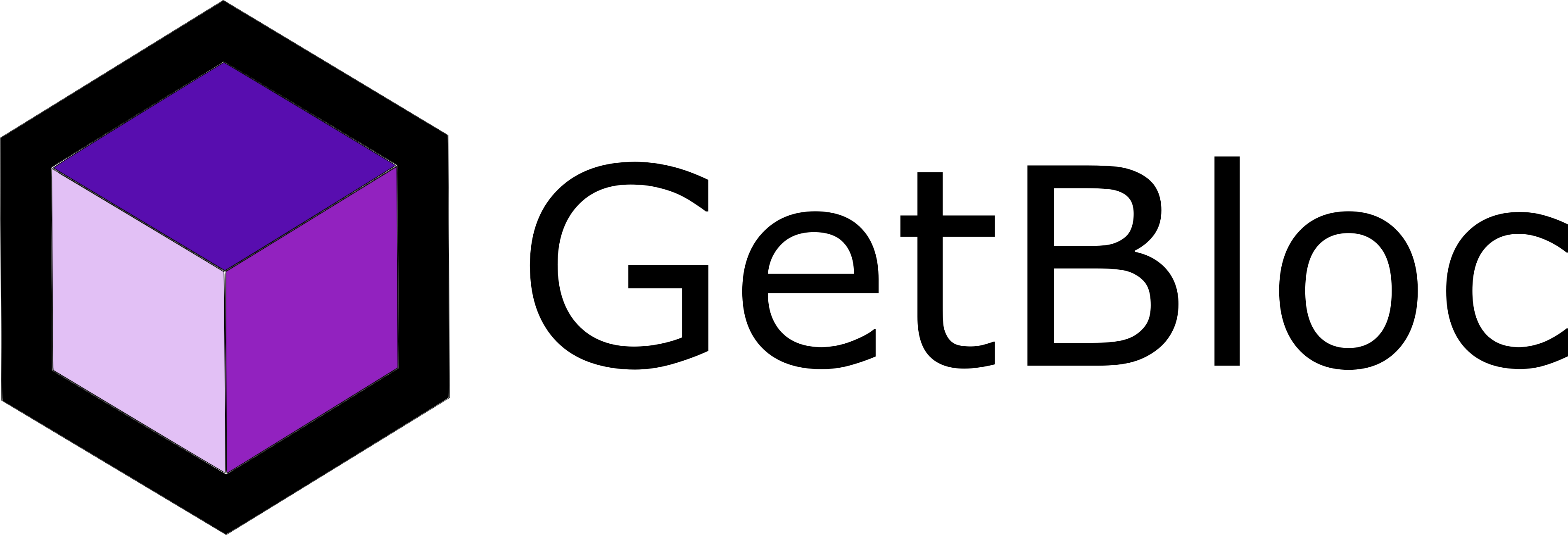getbloc 1.2.0  getbloc: ^1.2.0 copied to clipboard
getbloc: ^1.2.0 copied to clipboard
Create GetX Controllers with Events and/or States, instead using Provider as the bloc library uses, GetBloc uses GetX.

A dart package that helps implement the BLoC pattern with GetX.
This package is built to work with:
GetBloc #
Create GetX Controllers with Events and/or States, instead using Provider as the bloc library uses, GetBloc uses GetX.
Overview #
The purpose of this library is to apply the pattern used by the bloc library in GetX Controllers, facilitating maintainability, enabling better teamwork in project development.
StateController #
A StateController is class which extends BaseController and can be extended to manage any type of state. StateController requires an initial state which will be the state before emit has been called. The current state of a controller can be accessed via the state getter and the state of the controller can be updated by calling emit with a new state.
Creating a StateController
/// A `CounterController` which manages an `int` as its state.
class CounterController extends StateController<int> {
/// The initial state of the `CounterController` is 0.
CounterController() : super(0);
/// When increment is called, the current state
/// of the controller is accessed via `state` and
/// a new `state` is emitted via `emit`.
void increment() => emit(state + 1);
}
Using a Controller
void main() {
/// Create a `CounterController` instance.
final controller = CounterController();
/// Access the state of the `controller` via `state`.
print(controller.state); // 0
/// Interact with the `controller` to trigger `state` changes.
controller.increment();
/// Access the new `state`.
print(controller.state); // 1
/// Close the `controller` when it is no longer needed.
controller.close();
}
Observing a Controller
onChange can be overridden to observe state changes for a single controller.
onError can be overridden to observe errors for a single controller.
class CounterController extends StateController<int> {
CounterController() : super(0);
void increment() => emit(state + 1);
@override
void onChange(StateChange<int> change) {
super.onChange(change);
print(change);
}
@override
void onError(Object error, StackTrace stackTrace) {
print('$error, $stackTrace');
super.onError(error, stackTrace);
}
}
ObserverController can be used to observe all controllers.
class MyObserverController extends ObserverController {
@override
void onCreate(BaseController controller) {
super.onCreate(controller);
print('onCreate -- ${controller.runtimeType}');
}
@override
void onChange(BaseController controller, StateChange change) {
super.onChange(controller, change);
print('onChange -- ${controller.runtimeType}, $change');
}
@override
void onError(BaseController controller, Object error, StackTrace stackTrace) {
print('onError -- ${controller.runtimeType}, $error');
super.onError(controller, error, stackTrace);
}
@override
void onClose(BaseController controller) {
super.onClose(controller);
print('onClose -- ${controller.runtimeType}');
}
}
void main() {
Controller.observer = MyObserverController();
// Use controllers...
}
Controller #
A Controller is a more advanced class which relies on events to trigger state changes rather than functions. Controller also extends BaseController which means it has a similar public API as StateController. However, rather than calling a function on a Controller and directly emitting a new state, Controllers receive events and convert the incoming events into outgoing states.
Creating a Controller
/// The events which `CounterController` will react to.
enum CounterEvent { increment }
/// A `CounterController` which handles converting `CounterEvent`s into `int`s.
class CounterController extends Controller<CounterEvent, int> {
/// The initial state of the `CounterController` is 0.
CounterController() : super(0);
@override
Stream<int> mapEventToState(CounterEvent event) async* {
switch (event) {
/// When a `CounterEvent.increment` event is added,
/// the current `state` of the controller is accessed via the `state` property
/// and a new state is emitted via `yield`.
case CounterEvent.increment:
yield state + 1;
break;
}
}
}
Using a Controller
void main() async {
/// Create a `CounterController` instance.
final controller = CounterController();
/// Access the state of the `controller` via `state`.
print(controller.state); // 0
/// Interact with the `controller` to trigger `state` changes.
controller.add(CounterEvent.increment);
/// Wait for next iteration of the event-loop
/// to ensure event has been processed.
await Future.delayed(Duration.zero);
/// Access the new `state`.
print(controller.state); // 1
/// Close the `controller` when it is no longer needed.
controller.close();
}
Observing a Controller
Since all Controllers extend BaseController just like StateController, onChange and onError can be overridden in a Controller as well.
In addition, Controllers can also override onEvent and onTransform.
onEvent is called any time a new event is added to the Controller.
onTransform is similar to onChange, however, it contains the event which triggered the state change in addition to the currentState and nextState.
enum CounterEvent { increment }
class CounterController extends Controller<CounterEvent, int> {
CounterController() : super(0);
@override
Stream<int> mapEventToState(CounterEvent event) async* {
switch (event) {
case CounterEvent.increment:
yield state + 1;
break;
}
}
@override
void onEvent(CounterEvent event) {
super.onEvent(event);
print(event);
}
@override
void onChange(StateChange<int> change) {
super.onChange(change);
print(change);
}
@override
void onTransform(TransformController<CounterEvent, int> transition) {
super.onTransform(transition);
print(transition);
}
@override
void onError(Object error, StackTrace stackTrace) {
print('$error, $stackTrace');
super.onError(error, stackTrace);
}
}
ObserverController can be used to observe all controllers as well.
class MyObserverController extends ObserverController {
@override
void onCreate(BaseController controller) {
super.onCreate(controller);
print('onCreate -- ${controller.runtimeType}');
}
@override
void onEvent(Controller controller, Object? event) {
super.onEvent(controller, event);
print('onEvent -- ${controller.runtimeType}, $event');
}
@override
void onChange(BaseController controller, StateChange change) {
super.onChange(controller, change);
print('onChange -- ${controller.runtimeType}, $change');
}
@override
void onTransform(Controller controller, TransformController transition) {
super.onTransform(controller, transition);
print('onTransform -- ${controller.runtimeType}, $transition');
}
@override
void onError(BaseController controller, Object error, StackTrace stackTrace) {
print('onError -- ${controller.runtimeType}, $error');
super.onError(controller, error, stackTrace);
}
@override
void onClose(BaseController controller) {
super.onClose(controller);
print('onClose -- ${controller.runtimeType}');
}
}
void main() {
Controller.observer = MyObserverController();
// Use controllers...
}
Examples #
- Counter - an example of how to create a
CounterController.
See more about how to use Obx, GetView and Bindings to hook up a CounterPage widget to a CounterController in GetX.